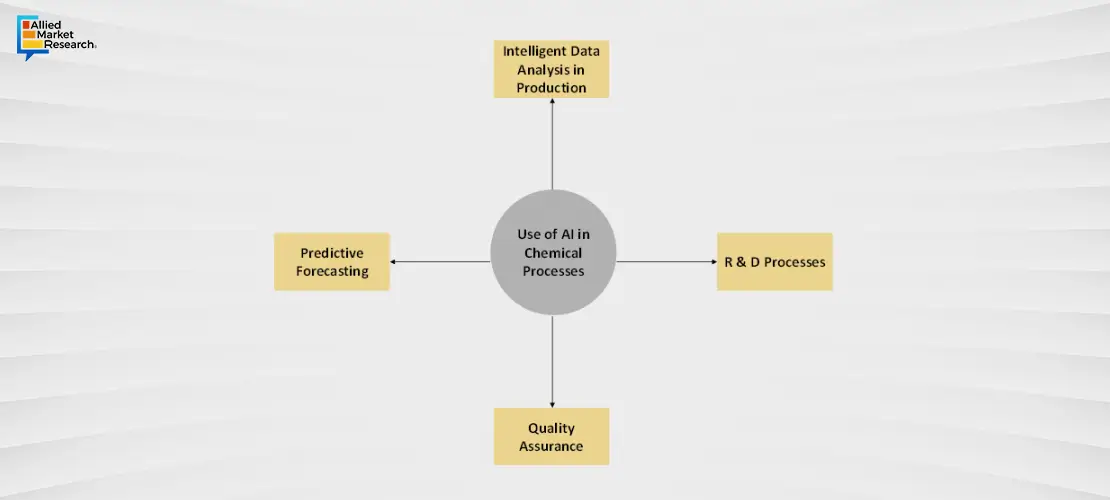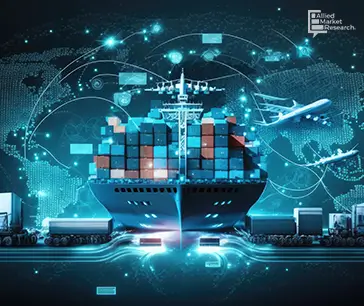Table Of Contents

Yerukola Eswara Prasad

Pratik Mandon
AI to Transform the Chemical Industry in 2024

Artificial Intelligence (AI) has emerged as a transformative force across various industries, including the chemical industry. With its ability to analyze vast amounts of data, optimize processes, and facilitate decision-making, AI is revolutionizing the way chemical processes are designed, monitored, and controlled. This integration of AI into the chemical industry holds the potential to enhance efficiency, safety, and sustainability.
Process Optimization
AI plays a crucial role in optimizing chemical manufacturing processes. Through machine learning algorithms, AI can analyze historical data, identify patterns, and predict optimal operating conditions. This enables manufacturers to enhance the efficiency of chemical reactions, reduce energy consumption, and minimize waste. Real-time process optimization helps in achieving higher yields and product quality. Below are some of the considerations that AI is applied to process optimization in the chemical industry:

- Data Analysis and Pattern Recognition
- Predictive Modelling
- Real-time Monitoring and Control
- Energy Efficiency
- Fault Detection and Diagnostics
In industries where products are manufactured in batches, AI can optimize batch processes by fine-tuning ingredient parameters. Machine learning models can analyze past batches, considering variations in feedstock and environmental conditions, to suggest adjustments for optimal results. AI, particularly machine learning algorithms, excels at analyzing large datasets. In the chemical industry, AI can process vast amounts of historical and real-time data from various sensors and instruments. By recognizing patterns and correlations within this data, AI can identify optimal process parameters, helping to improve yields, reduce waste, and enhance overall efficiency.
Chemical manufacturers are also focusing on energy efficient production technologies, i.e., to reduce carbon footprint and use of renewable energy. AI solutions analyze the data and provide various opportunities for efficiency improvisation. This involves adjusting operating conditions, scheduling processes during off-peak energy times, and implementing energy-saving measures, contributing to reduced operational costs. Ultimately, this helps in achieving consistent product quality and reducing the need for rework.
Predictive Maintenance
AI-powered predictive maintenance is increasingly being adopted in the chemical industry to monitor various equipment. By analyzing sensor data and historical performance, AI algorithms can predict an equipment failure possibility, allowing for timely maintenance. Temperature, pressure, fluid levels multiple variables are some of the parameters considered for analyzing this data. In recent times, machine learning algorithms are also being used to identify discrepancies which may indicate potential equipment failure and its need for maintenance. This adaptive control helps to maintain stable and efficient operations, particularly in complex processes with varying conditions. This not only reduces downtime but also prevents unexpected breakdowns, improving overall plant reliability.

Quality Control
AI applications in image recognition and spectroscopy contribute to improved quality control in chemical manufacturing. Machine learning models can analyze product characteristics, detect defects, and ensure that final products meet specific quality standards. This results in enhanced product consistency and reduces the likelihood of defects reaching the market. AI can be used for:
- Automated visual inspection
- Defect detection and classification
- Statistical Process Control
- Automated Testing and Sampling
- Root Cause Analysis
- Spectroscopy and Chemical Analysis
Supply Chain Optimization
AI enables more efficient management of the chemical supply chain. AI algorithms analyze historical data, market trends, and external factors to generate accurate demand forecasts. This allows chemical manufacturers to optimize inventory levels, production schedules, and distribution plans to meet customer demand while minimizing excess inventory and associated costs. AI can help in optimizing inventory levels by considering factors such as demand variability, lead times, and supply chain constraints. Machine learning models predict optimal inventory levels, reducing the risk of stockouts or overstock situations. This ensures that chemical manufacturers maintain efficient working capital and meet customer demand. There are also instances where AI can optimize transportation routes and warehouse efficiency, by considering factors such as distance, traffic conditions, fuel costs, delivery schedules, layout, inventory placement, and picking processes. This helps in enhancing order fulfillment, improved on-time delivery performance, errors, and minimizing the time required to process and ship products, contributing to overall supply chain efficiency. This leads to cost savings and ensures a smoother and more resilient supply chain.

Safety Enhancement
AI is instrumental in enhancing safety in chemical plants. Machine learning algorithms can analyze historical safety data to identify potential risks and predict unsafe conditions. Additionally, AI-powered monitoring systems can provide real-time alerts for abnormal operating conditions, allowing for rapid response to prevent accidents. AI facilitates advanced risk assessments and hazard analyses by analyzing large datasets related to chemical properties, process conditions, and historical incidents. This information helps in identifying potential hazards, assessing their likelihood and consequences, and implementing measures to mitigate risks proactively.
Challenges due to AI in Chemical Industry
One of the main risks associated with artificial intelligence in the chemical industry is the possibility of errors. As artificial intelligence systems become increasingly sophisticated, they can become more difficult to understand and operate, increasing the risk of errors and accidents. In addition, artificial intelligence systems may also malfunction, leading to unexpected results and potential hazards.
Analyst/Concluding Statement
AI technologies have tremendous potential in improving chemical production processes. From demand forecasting to quality control, technologies using artificial intelligence are completely redefining the concepts of chemical production. Significantly reduced costs, increased production speed, and overall business process efficiency are the new standards that AI tools are introducing. Chemical companies that have already implemented artificial intelligence are showing impressive returns on investment, better product quality, and streamlined supply chain processes. Effective implementation of new solutions plays a crucial role in the development of chemical industry enterprises.

